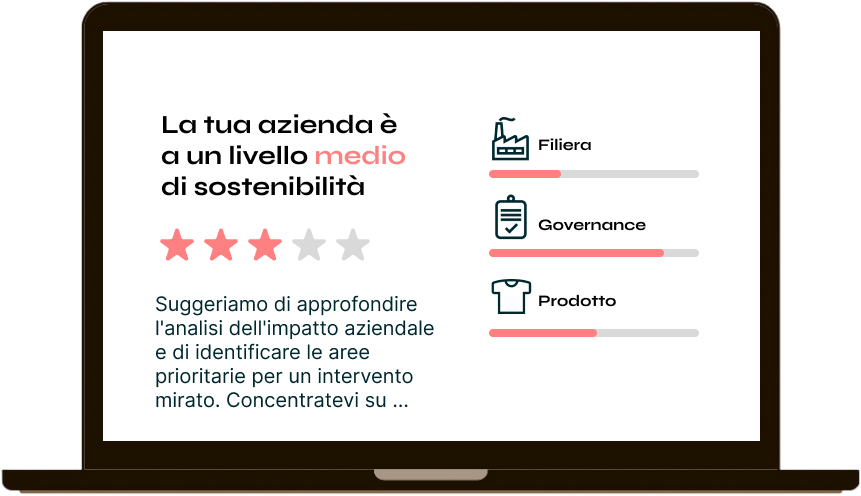Interview with Candiani Denim: Innovation, Experience and Made in Italy
Candiani Denim was founded in 1938 in a small town near Milan and has been a family-owned business ever since.
Candiani believes in the importance of Made in Italy, sustainability and innovation, values deeply woven into every fabric produced.
Thanks to its 75 years of experience, it is known as the "Greenest textile company in the blue World" and produces denim clothing for the most prestigious brands on the market.
Founded as a simple weaving facility dedicated to the production of Massaua fabrics, a denim-like fabric used for workwear, Candiani is currently the market leader in the production of sustainable denim fabric. The beginning of the company's story reminded us of that of Berto Industria Tessile, another example of an exemplary denim company in the industry and one we have already discussed here.
The brand's "green" vision was more than ever developed by the current owner, Alberto Candiani. Under his control, the company has focused much of its investment in the R&D area, thanks to which production can boast of highly innovative machinery.
Danielle Arzaga, Sustainability Manager of Blue collars (brand that manages the marketing and retail operations area of Candiani Denim) told us in detail how the company operates, with what vision and mission and why it enjoys the reputation as the most sustainable denim company in the world.
What emerged can be summarized as: innovation, sustainability, and cultural and historical heritage. Regarding innovation, technologies are its strength because they enable the company to reduce the consumption of water, chemicals, and energy. These resources are renowned for the overuse of their use in denim production: production with innovative machinery to obviate this waste has therefore become a must.
Sustainability, which is directly related to the concept of innovation, is the area in which they are investing the most: it is the present and the future, says Danielle. The close link between the two concepts is essentially manifested in two areas: that of raw materials and that of the production process.
Regarding the first aspect, Candiani Denim is collaborating with Archroma to supply the dyes called by the EarthColors brand, whose dyes are derived from agricultural waste. In addition, most of the raw materials are recycled or bio-based (read our article here to learn more).
Much of the focus of the company's business is on production processes. Denim production, as we have already mentioned, requires the use of many resources, especially water and energy. To remedy this problem, Candiani uses technologies that allow the color to penetrate the yarn without needing additional chemicals and allowing for a large reduction in pollutant impact.
Another revolutionary innovation is that of Coreva. The technology has enabled Candiani Denim to create a stretch jean from 100% bio-based fabric, sourced from natural rubber. The revolutionary aspect is also that the fabric itself is completely compostable. When the garment is thrown away, it will continue to have a function: it will serve as fertilizer for growing cotton for the next generation of fabric.
Have you heard of regenerative agriculture yet? Listen to our interview with Timberland here, where we talk about it extensively.
Danielle confirms to us, like the other brands we interviewed, that the trend of sustainability in the fashion world is growing. The confirmation comes from Candiani's own customers, who have received 8 times as many requests for sustainable fabrics in the past year as they did last year.
We've definitely seen a growth and interest from our clients for more sustainable fabrics. A good example of this is the exponential growth of the requests for organic certified fabrics. It's basically gone from 200,000 meters to 1.6 million meters in more or less a year.
Danielle Arzaga, Blue Collars Sustainability Manager
Collaboration with its suppliers or partners is one of the secrets of Candiani Denim's success. Maintaining strong relationships with suppliers, Danielle says, allows them to test a new material, technology, fiber or dye. The moment the test is successful, it can be applied on an industrial scale: this saves a lot of resources and accelerates technological progress.
Collaborating or, as in the case of Candiani Denim, entering into partnerships with its suppliers also allows for better traceability of the production chain. Despite the company's production size, resources are sourced rather locally.
The brand is currently building a local supply chain for cotton: by 2022, it will be able to source 50 percent of its cotton from Europe. Tracking the origin of cotton has become critically important for Candiani Denim since the phenomenon of falsifying organic cotton certifications in India. Auditing at the factories therefore remains the strongest guarantee.
However, certifications, Danielle says, remain a starting point for traceability of the supply chain and are an excellent assurance tool for the end consumer.
Among Candiani Denim's projects is the opening of a retail outlet in downtown Milan. Inside, one can buy capsule collection garments created in collaboration with Candiani brand brands, with which they share values and a long-standing relationship.
The purpose of this initiative is not simply to show the end consumer the quality of the fabric, but also to dedicate a space to inform about sustainability issues, the impact of textile production, and how the consumer himself can take care of the garment.
Conclusions
It is a fact: numbers are increasing, demands are growing, and awareness is taking hold among both consumers and fashion companies. The issue of sustainability is increasingly in the spotlight, although the process of change is gradual.
If a visionary and forward-looking brand like Candiani Denim is currently investing most of its resources in this area, it is to be hoped that many companies will follow in its footsteps: for their own well-being, for the well-being of others, both physical and economic.
Get articles like this and the latest updates on sustainable fashion automatically!
